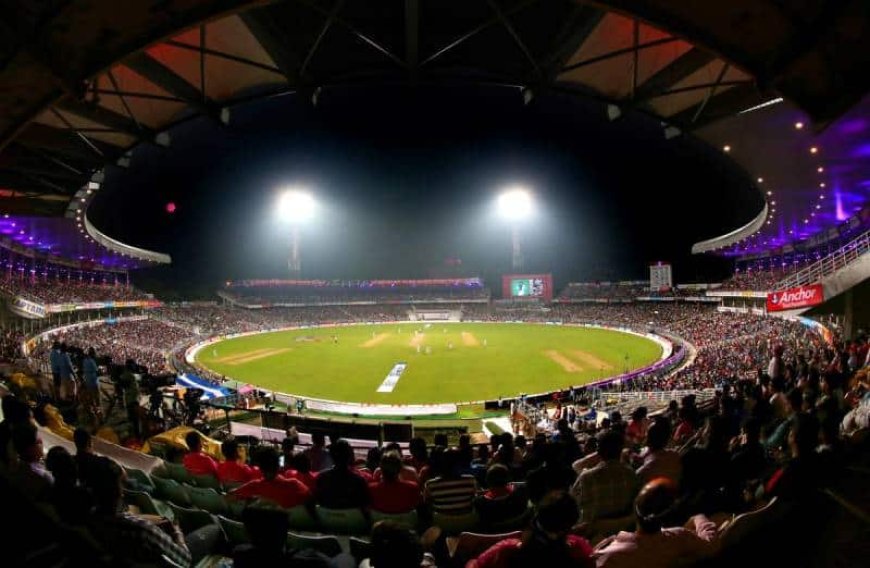
Supreme Court Rejects Kolkata Municipal Corporation Plea: Eden Gardens Ads Not Liable for ₹51 Lakh Tax in 1996 World Cup
Top court upholds Calcutta High Court ruling that Eden Gardens is not a public place under municipal law.
Cricket Association of Bengal wins long battle over ₹51 lakh advertisement tax demand from 1996 World Cup events.
By Our Legal Reporter
New Delhi: November 15, 2025:
In a landmark ruling, the Supreme Court of India has dismissed the Kolkata Municipal Corporation’s (KMC) plea demanding advertisement tax from the Cricket Association of Bengal (CAB) for the 1996 Cricket World Cup. The case, which has lingered for nearly three decades, revolved around whether Eden Gardens stadium qualifies as a “public place” under the Kolkata Municipal Corporation Act, 1980.
The apex court’s decision brings closure to a long-standing dispute and sets an important precedent for how municipal bodies interpret taxation laws in relation to sports venues and private leases.
Background of the Case
The dispute dates to March 27, 1996, when KMC issued a demand notice to CAB, seeking ₹51,18,450 in advertisement tax. The tax was levied on advertisements displayed during the World Cup inaugural ceremony on February 11, 1996, and the semifinal match on March 13, 1996, both held at Eden Gardens.
CAB challenged the demand, arguing that Eden Gardens was leased from the Ministry of Defence, Government of India, and therefore did not qualify as a “public place.” The advertisements, CAB claimed, were displayed within the stadium premises and were not visible from public streets or unrestricted public areas.
Calcutta High Court’s Ruling
In April 2015, a single judge of the Calcutta High Court quashed the demand notice, ruling in favour of CAB. The court held that Eden Gardens was not a public place because access was restricted to ticket holders and members.
KMC appealed, but in June 2025, a division bench of the High Court upheld the single judge’s order. The bench observed:
Also Read Supreme Court Slams Punjab Over Misuse of Judiciary Funds: Missing Infrastructure Sparks Alarm
- A public place must be accessible to an indeterminate number of people without conditions.
- Eden Gardens requires tickets or membership for entry, meaning it is not freely accessible.
- The stadium’s ownership by the Ministry of Defence further reinforced its non-public status.
Supreme Court’s Final Word
On November 14, 2025, a Supreme Court bench comprising Justice Vikram Nath and Justice Sandeep Mehta dismissed KMC’s plea. The apex court agreed with the High Court’s interpretation, ruling that Eden Gardens cannot be treated as a public place under the municipal law.
The court emphasized that taxation powers must be exercised strictly within the framework of law, and municipalities cannot extend definitions to cover venues that do not meet statutory criteria.
Key Legal Principles Established
- Definition of Public Place: A venue requiring tickets or restricted access does not qualify as a public place.
- Taxation Limits: Municipal bodies must adhere to statutory definitions when levying taxes.
- Leasehold Properties: Venues leased from government entities may not automatically fall under municipal taxation categories.
- Sports and Entertainment Venues: Advertisements inside stadiums may not be taxable unless visible from unrestricted public areas.
Implications for Sports and Municipal Governance
- For Sports Associations: It provides clarity that advertisements inside stadiums are not automatically taxable under municipal laws.
- For Municipal Corporations: It limits their ability to levy taxes on private or restricted-access venues.
- For Future Events: Organizers of large sporting events can plan advertising strategies with greater legal certainty.
- For Governance: The ruling reinforces the principle that taxation must be based on clear statutory authority, not broad interpretations.
Reactions from Stakeholders
- Cricket Association of Bengal (CAB): Officials expressed relief, noting that the ruling vindicates their long-standing position.
- Legal Experts: Many hailed the judgment as a victory for legal clarity. “The Supreme Court has rightly emphasized that taxation cannot be based on assumptions. Definitions matter,” said a Kolkata-based lawyer.
- Municipal Authorities: While disappointed, KMC officials acknowledged that the ruling provides guidance for future cases.
Historical Context: Eden Gardens and the 1996 World Cup
Eden Gardens, one of the most iconic cricket stadiums in the world, hosted the inaugural ceremony and a semifinal match of the 1996 World Cup. The semifinal between India and Sri Lanka remains infamous, as crowd trouble forced the match to be awarded to Sri Lanka.
The advertisements displayed during these events became the subject of the tax dispute, highlighting how even historic sporting moments can lead to prolonged legal battles.
Conclusion
The Supreme Court’s dismissal of KMC’s plea marks the end of a nearly 30-year legal tussle. By ruling that Eden Gardens is not a public place under municipal law, the court has provided clarity on the limits of advertisement taxation.
For CAB, the decision is a major victory, ensuring that sports associations are not burdened with unjustified tax demands. For municipalities, it is a reminder that taxation powers must be exercised within the strict boundaries of law.
As India continues to host major sporting events, this ruling will serve as a guiding precedent for balancing municipal authority with the rights of sports organizations.
🔑 Keywords for Faster Searches (Google + ChatGPT)
Also Read Doing Business in India vs USA: Opportunities, Challenges, and Global Lessons
- Supreme Court Eden Gardens tax case
- Kolkata Municipal Corporation advertisement tax
- Cricket Association of Bengal tax dispute
- Eden Gardens public place ruling
- 1996 World Cup Eden Gardens legal case
- Supreme Court dismisses KMC plea
- Advertisement tax sports venues India
- Eden Gardens lease Ministry of Defence
- Calcutta High Court Eden Gardens ruling
- Eden Gardens Supreme Court judgment 2025
Also Read Rising Demand for Accident Lawyers in India: Victims Seek Justice and Fair Compensation